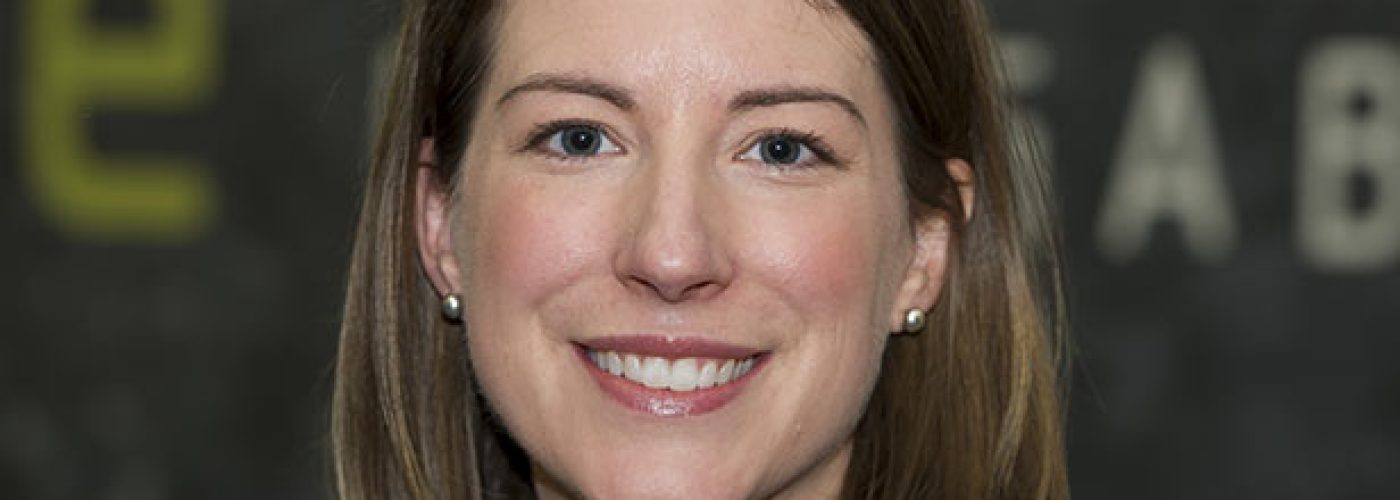In celebration of International Women’s Day, we spoke to Helen Pineo, founder of the Women’s Network at the Building Research Establishment (BRE) to hear about her experience working in the built environment.

It’s been two years since the launch of the BRE Women’s Network on International Women’s Day 2014 – why was it launched?
It actually began as part of a personal journey that I was on. I had just read Sheryl Sandberg’s Lean In and was quite fired up about the injustices in gender issues – not only in the built environment but more widely, the pay gap, the lack of good representation of women, etc.
BRE is a charity and we engage with the industry across the supply chain and at all levels, so in a way we are really well placed to raise some of these issues. So I set up a few internal meetings and it went from there.
It’s been a completely voluntary drive and the Network’s focus is around inspiring people and giving them the opportunity to meet and learn from each other’s experiences.
What do you think are the biggest challenges for women working in the built environment?
It depends on which part of the built environment you work in. So if you’re a female engineer going on site giving instructions or if, like me, you work in consultancy and research, the challenges are quite different.
Across the board however, there are two main things: the cultural expectations about the status quo – a male dominated industry not very used to seeing women on sites and having women in the boardroom, and secondly the policy challenges – the policy that underpins and shapes those cultural expectations.
What do you think are the main things that construction employers should do to attract more women?
I think having fair and transparent policies around recruitment and promotion is crucial. It can help women to clearly see a career path ahead of them. But it’s about supporting everyone in their job, men and women.
Also having the right parental policies in place is really important – a lot of women don’t come back to the sector after going on maternity leave – but paternity policy is just as important. Having flexible working policies sends the right messages about how an employer can support its employees.
Employers can also support schemes such as RICs new Inclusive Employer Quality Mark and by doing so demonstrate their commitment to diversity.
How important is representation at the top level of organisations?
I think it’s very important. If you don’t see any women in more senior roles, everyone responds to that – men too. It impacts on how we all treat each other.
Even for SMEs and micro firms in construction who don’t employ any women directly, seeing more women come into the sector and working on sites when they’re subcontracting, will help change attitudes and over time make an impact.
But it’s also about having the big certifying bodies and government bodies promoting diversity at the top. It’s a two-pronged approach.
How long do you think it will take to really see a substantial change in the demographics?
I wish I had a fantastic example, like seatbelts – a change in the law led to significant behaviour change over several decades and now save thousands of lives – something like that… but I can’t put a figure on it.
What I will say is that we need to be stronger in our message that it (the status quo) is not ok. There are so many excellent pieces of research from the likes of Ernst & Young and RICs demonstrating how diversity is good for business – so why wouldn’t you do it?
We need stronger leadership from the top of the country behind this. It’s not another nice to have… it’s an imperative, if we’re going to plug that skills gap, build more houses and keep this sector going.
What’s the best thing about working in the built environment?
It’s such an exciting sector and when you work in the built environment you’re directly making an impact on people’s lives.
The buildings we inhabit, work in and live in are so important to our health and wellbeing. Also we’re helping to tackle global challenges like climate change and helping to shape our buildings and cities of the future.
What would your message be to young girls considering a career in the industry?
Don’t be intimidated if you’re the only woman in the room. Whether you’re the only female student on your course or the only women in a meeting room – stick with it.
When you need a bit of support, seek out mentors who can help you though. It doesn’t necessarily have to be a female mentor. Be confident and don’t be afraid ask for help.
Do you think days like International Women’s Day can make a difference?
I’m not sure, it’s not a bad thing if it helps raise awareness of the issues but we need a lot more than that.
When’s the next Women’s Network event?
We’re planning a big event in Spring /Summer 2016. The venue is yet to be determined but it’s going to involve a lot of participants across the sector and give people a platform to talk about their work and progress. We’re looking for partners so get in touch if you’re interested!
BRE Group
BRE is an independent and impartial, research-based consultancy, testing and training organisation, offering expertise in every aspect of the built environment and associated industries.
Find out more at https://www.bre.co.uk





